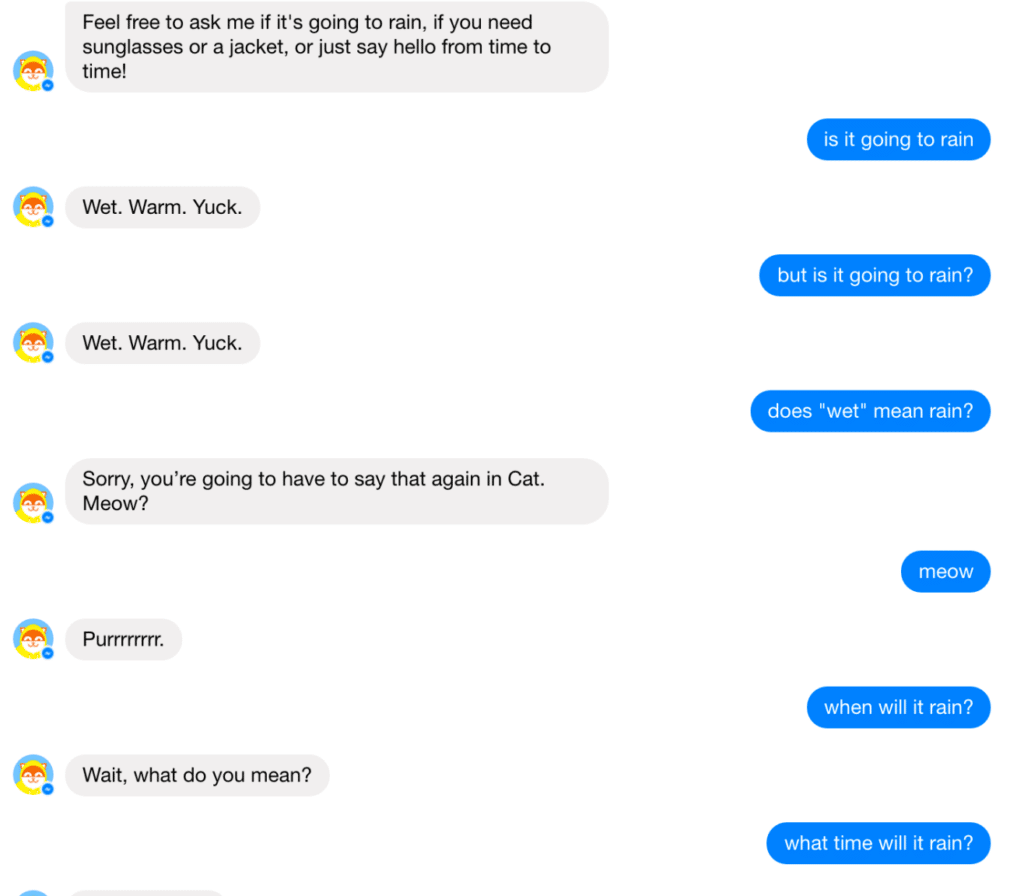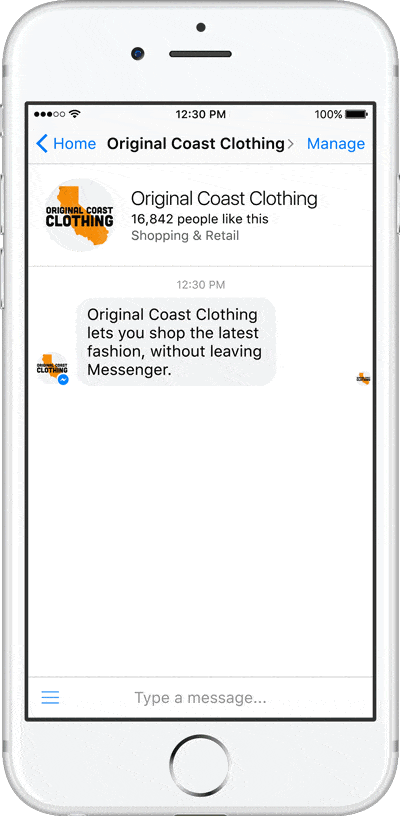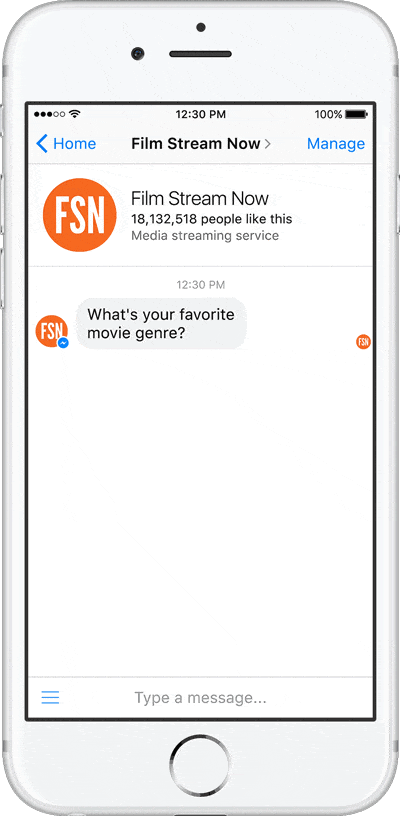Facebook is literally, step by step, becoming a WeChat copycat. After inspiring itself from WeChat payment and WeChat public accounts, it is now copying much of the public accounts design.
How Facebook is copying WeChat account menus
3 months ago, Facebook announced it would launch “bots” on public accounts. These accounts looked very much like… WeChat public accounts. Facebook hoped it would be magic: people would speak to the accounts, and they would automatically learn how to answer to users through some embedded artificial intelligence.
Well, things turned out not to be that bright: conversations between users and Facebook bots didn’t make any sense.

Photo credit: techcrunch.com
And when Facebook was looking for an answer to its problem, it knew where to look: once again, WeChat.
Because indeed it has now been more than 2 years since WeChat solved the issue of public accounts by giving them menus with which to interact with users. Facebook solution is almost identical.

Photo credit: techcrunch.com
Facebook Messenger also offers “suggested answers” to users to remain in the more “conversational” interface.

Photo credit: techcrunch.com
This is far from being the first time Facebook takes inspiration from WeChat. Previous occurences include:
- Integration of payment
- Mixing social experience and e-commerce
- In general, generating revenues from services rather than ads
Where Facebook does it better
Of course being a follower has its advantages. Although Facebook is coming late into the messaging game, it is also a good opportunity for the company to improve on the design from Tencent.
One obvious upgrade: Facebook menus are not obtrusive, users don’t have to switch between conversation and menus like they do on WeChat. They can access them at any moment from the panel on the left, while the chat remains visible. Much less confusing for users.
Beyond bots, Facebook also beats WeChat in a few other areas:
- Video integration: as video content is booming in popularity over the recent years, Facebook has been doing a great job at seamlessly integrating it into the feed. That’s not the case yet with WeChat, and even video moment ads come out as clunky
- Targeted ads: Facebook has an impressive array of tracking tools provided to marketers, including re-targeting and “lookalike targeting”. Compared to it, WeChat ads targeting system appears as all very primitive
Where Facebook fails miserably
But what’s Facebook biggest issue? That users and companies don’t really seem to care. There are 11,000 Facebook messenger bots registered so far. That’s not bad after 3 months. But if you compare it to WeChat? Well: just add three 0’s. WeChat has over 10,000,000 official public accounts registered, some of them becoming real companies by themselves.
When it comes to software, adding features is the easy part. But how to have people using them? So far, Facebook messenger bots seem to be failing this test.

